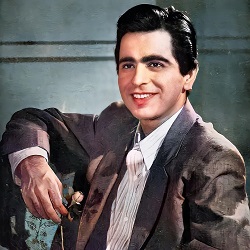THE POWERS OF THE PRESIDENT OF INDIA-PART II
The President can exercise his Veto powers when a bill is passed by the Parliament but he wants to hold his assent to the bill. Except for Qualified the President of India enjoys Pocket, Absolute and Suspensive vetos. His counterparts such as the President of the USA and France. The former has Qualified and Pocket Veto and the latter has only the Qualified Veto. The Pocket Veto of the Indian President is bigger than that of the President of the USA. The former can keep the bill in his pocket for an unlimited period of time whereas the latter has to return it after the period of 10 days. The President of India can not exercise any of his Veto powers in case of the Constitutional Amendment Bill. 24th Amendment Act 1971, made it obligatory ( compulsory) for the President to give his assent to a Constitutional Amendment Bill.
THE VETO POWER OF THE PRESIDENT
- The types of the Veto Power are-
- Absolute Veto- Withholding an Assent to the Bill passed by the Parliament.
- Suspensive Veto- An ordinary majority in the Parliament can override it.
- Qualified Veto- A higher majority is required in the Parliament to override it.
- Pocket Veto- To delay the assent to the bill.
FINANCIAL POWER OF THE PRESIDENT
- Article 280, President constitute the Finance Commission at an interval of five years. The commission guides the President on the matters of distribution of finances between the Union and the States,
- Article 110, Money Bill is introduced on the prior recommendation of the President of India.
- Article 112, The Annual Financial Statement i.e Budget is laid by him in the Parliament.
- Article 267, The Contingency Fund Of India, the President of India is the sanctioning authority for release of fund from it.
JUDICIAL POWERS OF THE PRESIDENT
- Article 72, President has been granted by a power pardon. It includes Pardon, Commutation, Remission, Respite and Reprive.
- Pardon- Completely absolves a convict from all sentences.
- Commutation- Substitution of the punishment from its original form to a lighter form.
- Respite- A lesser punishment is awarded in place of the original.
- Remission- The form of the punishment is not changed but its duration is altered.
- Reprieve- It provides ‘Stay ‘ on the execution of a punishment for a temporary period.
- Above all, the President appoints the Chief Justice Of India.
- Article 143, the President can seek the advice of the Supreme Court Of India but the former is not bounded to it.
- President is the only authority to pardon the death sentence.
- The President can remit or commute the person convicted of the following offence-
- Court Martial.
- All cases including the death sentence.
- An offence against any law relating to the matter of the executive power of the Union extends.






